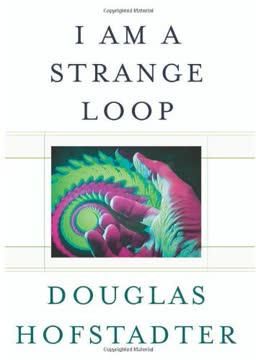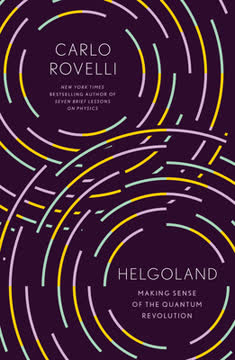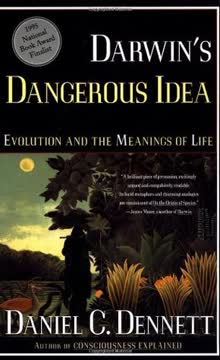Key Takeaways
1. Free will is compatible with determinism and shaped by evolution
We are not just clever brutes, resourceful agents looking out for themselves in a dangerous world, and we are not just herd animals either, unwittingly huddling together for mutual benefit that they needn't understand.
Evolutionary perspective. Free will and determinism are not mutually exclusive. Our ability to make choices and be morally responsible agents has evolved over billions of years through natural selection. This process has shaped our cognitive abilities, including our capacity for self-reflection and decision-making.
Degrees of freedom. As organisms became more complex, they gained more degrees of freedom in their behavior. Simple organisms have limited options, while humans have a vast array of possible actions. This increase in behavioral flexibility is the result of evolutionary processes that favored organisms with greater adaptability.
Compatibilism. The author argues for a compatibilist view of free will, which holds that free will is compatible with determinism. This perspective recognizes that our choices are influenced by our genes, environment, and past experiences, but maintains that we can still be free and responsible agents within these constraints.
2. Consciousness and decision-making are distributed processes in the brain
You are not out of the loop; you are the loop.
Distributed cognition. Consciousness and decision-making are not localized in a single area of the brain but are distributed processes involving multiple neural networks. This challenges the notion of a centralized "self" making decisions.
Timing of decisions. Research by Benjamin Libet and others has shown that brain activity associated with decisions can be detected before we become consciously aware of making a choice. However, this doesn't negate free will; it simply reveals the complex nature of decision-making processes.
Illusion of conscious will. While we may feel that our conscious thoughts directly cause our actions, the reality is more complex. Our decisions emerge from the interplay of conscious and unconscious processes, with consciousness often serving as an interpreter of our actions rather than their sole cause.
3. Cultural evolution and memes play a crucial role in human agency
Culture makes things easier--or possible at all.
Memes and cultural transmission. Human culture, including ideas, beliefs, and practices, evolves through a process similar to biological evolution. Memes, units of cultural information, spread and replicate, shaping our cognitive environment.
Cultural scaffolding. Our ability to make decisions and act as moral agents is heavily influenced by the cultural tools and concepts we inherit. Language, social norms, and institutions provide a framework that enables more sophisticated forms of agency.
Coevolution of genes and culture. Human biological evolution and cultural evolution have influenced each other, creating a unique cognitive niche. This coevolution has dramatically expanded our behavioral repertoire and decision-making capabilities.
4. Moral responsibility emerges from social practices, not metaphysical facts
Blame is the price we pay for credit, and we pay it gladly under most circumstances.
Social origins of responsibility. Moral responsibility is not a metaphysical fact about the universe but a social construct that emerges from our practices of praise, blame, and punishment. These practices serve important social functions and shape our behavior.
Negotiated thresholds. The criteria for moral responsibility are not fixed but are continually negotiated within societies. As our understanding of human behavior and cognition advances, these thresholds may shift.
Pragmatic approach. Instead of grounding moral responsibility in abstract metaphysical concepts, we should focus on the practical consequences of our attributions of responsibility. This approach allows for a more flexible and nuanced understanding of agency and culpability.
5. Self-control and commitment problems shape our understanding of free will
Fake it until you make it.
Intertemporal choice. Many of our most important decisions involve trade-offs between immediate and future rewards. Our ability to delay gratification and make commitments is crucial to our conception of free will and moral responsibility.
Hyperbolic discounting. Humans tend to discount future rewards hyperbolically, leading to preference reversals over time. This can create internal conflicts and challenges for self-control.
Strategies for self-control. We have developed various strategies to overcome our tendencies toward short-term thinking:
- Pre-commitment devices
- Environmental modifications
- Social support and accountability
- Mental rehearsal and visualization
These strategies allow us to align our actions with our long-term goals, enhancing our sense of agency and control.
6. Science enhances rather than threatens our conception of freedom
Scientific knowledge is the royal road--the only road--to evitability.
Expanding possibilities. Scientific knowledge increases our understanding of the factors influencing our behavior, thereby expanding our ability to make informed choices and avoid undesirable outcomes.
Neuroscience and psychology. Advances in these fields provide insights into decision-making processes, cognitive biases, and the nature of consciousness. Far from undermining free will, this knowledge empowers us to make better decisions and overcome limitations.
Technological enhancements. Science and technology offer new tools for enhancing human agency:
- Cognitive enhancers
- Prosthetic devices
- Therapeutic interventions
- Educational techniques
These advancements can increase our capacity for self-control and rational decision-making, potentially expanding the scope of human freedom.
7. The future of human freedom lies in ethical and political choices, not metaphysics
We now have more power than ever to create the conditions under which we and our descendants will lead our lives.
Shifting focus. The most pressing questions about human freedom are not metaphysical but ethical and political. We must decide how to structure our societies and institutions to promote human flourishing and responsible agency.
Evolving concepts. Our understanding of freedom and responsibility will continue to evolve as we gain new knowledge and face new challenges. We must be willing to revise our concepts and practices in light of scientific and social progress.
Ethical challenges. Emerging technologies and scientific discoveries pose new ethical dilemmas:
- Genetic engineering
- Artificial intelligence
- Brain-computer interfaces
- Cognitive enhancement
Addressing these challenges requires careful consideration of our values and the kind of future we want to create. The author argues that we should embrace a naturalistic, scientifically-informed approach to ethics and politics, rather than clinging to outdated metaphysical notions of free will.
Human Translator: This adaptation effectively captures the key ideas of the book "Freedom Evolves" by Daniel Dennett. It presents a naturalistic, evolutionary account of human freedom and moral responsibility that is compatible with scientific determinism. The adaptation highlights Dennett's arguments for compatibilism, the distributed nature of consciousness and decision-making, the role of culture in shaping human agency, and the pragmatic approach to moral responsibility. It also emphasizes the importance of self-control and commitment in our understanding of free will, and argues that scientific knowledge enhances rather than threatens our freedom. The final section underscores Dennett's view that the future of human freedom depends on ethical and political choices informed by scientific understanding, rather than on metaphysical speculations.
Last updated:
FAQ
What's Freedom Evolves about?
- Exploration of Free Will: Freedom Evolves by Daniel C. Dennett delves into the concept of free will, examining it through the lenses of determinism and evolution. Dennett argues that free will is not a supernatural phenomenon but a product of evolutionary processes.
- Naturalistic Perspective: The book presents a naturalistic view, suggesting that our minds and consciousness are products of evolutionary processes. Dennett aims to dismantle the fear that determinism negates our moral agency and the significance of our choices.
- Cultural and Biological Interplay: Dennett discusses how cultural evolution and biological evolution interact to shape human behavior and moral responsibility, emphasizing that our understanding of freedom must incorporate insights from both fields.
Why should I read Freedom Evolves?
- Challenging Traditional Views: The book challenges long-held beliefs about free will and determinism, making it essential for anyone interested in philosophy, psychology, or neuroscience.
- Interdisciplinary Approach: Dennett combines philosophy, neuroscience, and evolutionary biology, making it a valuable read for those interested in how these fields intersect.
- Relevance to Modern Issues: The discussions are relevant to contemporary debates about free will, ethics, and the implications of neuroscience on our understanding of human behavior.
What are the key takeaways of Freedom Evolves?
- Freedom is Evolved: Dennett argues that freedom is not a mystical quality but an evolved trait that can be understood through science.
- Determinism vs. Free Will: The book emphasizes that determinism does not eliminate free will; rather, it redefines it, allowing for meaningful choices within a deterministic framework.
- Understanding Human Nature: Understanding our biological and evolutionary roots can enhance our appreciation of freedom and help us navigate moral and ethical dilemmas more effectively.
What are the best quotes from Freedom Evolves and what do they mean?
- "We don't have to have immaterial souls... to live up to our hopes.": This quote encapsulates Dennett's argument that free will can exist without supernatural explanations, grounding consciousness and morality in natural science.
- "The atmosphere of free will is another sort of environment.": Dennett compares free will to an evolving atmosphere, indicating that our understanding of freedom is shaped by cultural and social interactions.
- "The truth really will set you free.": This emphasizes the importance of understanding the truth about our nature and freedom, suggesting that knowledge and self-awareness empower meaningful choices.
How does Daniel C. Dennett define free will in Freedom Evolves?
- Evolved Capacity: Dennett defines free will as an evolved capacity that allows individuals to make choices based on their desires and reasoning.
- Practical Reasoning: He emphasizes the role of practical reasoning in decision-making, where individuals weigh their desires and beliefs to arrive at a choice.
- Moral Responsibility: Dennett connects free will to moral responsibility, asserting that individuals can be held accountable for their actions even if those actions are determined.
What is the relationship between determinism and free will in Freedom Evolves?
- Compatibility Argument: Dennett argues that determinism and free will are compatible, challenging the traditional view that they are mutually exclusive.
- Elbow Room: He introduces the concept of "elbow room," which refers to the space for making choices within a deterministic framework.
- Causal Chains: Dennett emphasizes that while our actions may be determined by prior events, we still have the capacity to make meaningful choices.
How does Freedom Evolves address the concept of moral responsibility?
- Moral Agency: Dennett asserts that moral responsibility is not undermined by determinism; rather, it is redefined within a deterministic framework.
- Ultimate Responsibility: He introduces the idea of "ultimate responsibility," which refers to the capacity of individuals to be the source of their actions.
- Cultural Context: The book emphasizes the role of culture and social interactions in shaping our understanding of moral responsibility.
What is the significance of the "readiness potential" in Freedom Evolves?
- Brain Activity Preceding Action: The readiness potential is a measure of brain activity that occurs before a conscious decision to act, suggesting that decisions may be initiated unconsciously.
- Implications for Free Will: This finding raises questions about the nature of free will, as it implies that our conscious awareness of decisions may come after the brain has already begun the process of action.
- Challenge to Traditional Views: Dennett uses this concept to challenge the notion that free will is purely a conscious, deliberate process.
How does Freedom Evolves redefine the concept of self?
- Self as a Process: Dennett argues that the self is not a static entity but rather a dynamic process shaped by interactions and experiences.
- Narrative Construction: The book emphasizes that individuals construct their identities through narratives and social interactions.
- Agency and Responsibility: By viewing the self as a process, Dennett suggests that individuals can take ownership of their actions while acknowledging the influences of their environment and biology.
What role does meme theory play in Freedom Evolves?
- Cultural Replicators: Dennett introduces the concept of memes as units of cultural transmission that replicate and evolve.
- Memetic Selection: The book explores how certain memes can become dominant within a culture, influencing societal norms and values.
- Impact on Morality: Dennett suggests that memes play a crucial role in the development of moral frameworks.
How does Freedom Evolves challenge traditional views on determinism?
- Determinism vs. Free Will: Dennett argues that determinism does not negate free will; rather, it provides a framework for understanding human agency.
- Complexity of Decision-Making: The book highlights the complexity of decision-making processes, emphasizing that human behavior cannot be reduced to simple cause-and-effect relationships.
- Moral Responsibility: Dennett contends that moral responsibility can coexist with determinism, as individuals can still be held accountable for their actions.
Review Summary
Freedom Evolves explores free will and determinism, arguing that free will can exist in a deterministic universe. Dennett contends that freedom evolves through natural selection and is not incompatible with scientific determinism. Reviews are mixed, with some praising Dennett's approach and others finding his writing style challenging. Critics argue that he changes definitions of key terms and doesn't fully resolve the contradiction between determinism and free will. Many readers appreciate Dennett's thought-provoking ideas but find the book dense and occasionally difficult to follow.
Similar Books










Download PDF
Download EPUB
.epub digital book format is ideal for reading ebooks on phones, tablets, and e-readers.








